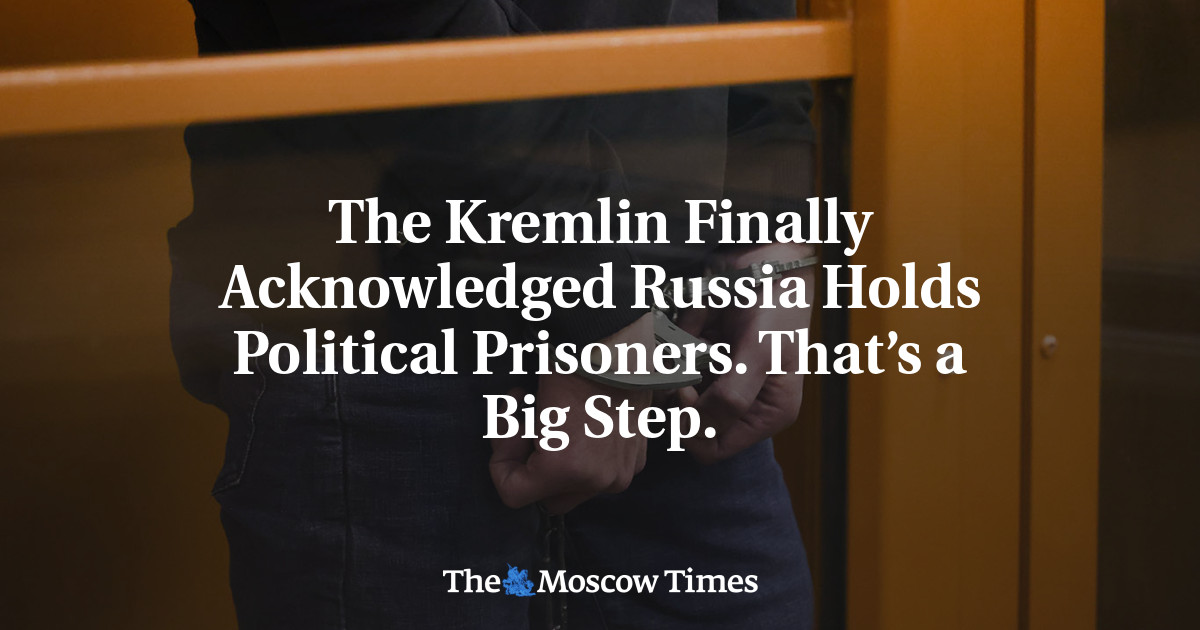
The Kremlin Finally Acknowledged Russia Holds Political Prisoners. That’s a Big Step.
How did your country report this? Share your view in the comments.
Diverging Reports Breakdown
The Kremlin Finally Acknowledged Russia Holds Political Prisoners. That’s a Big Step.
Russian authorities have denied the existence of political prisoners for decades. Now, people who oppose Russia’s war with Ukraine and are prosecuted for it are officially framed as criminals. The label “political prisoner” includes those who found themselves behind bars after the outbreak of full-scale war. Moscow is using this potential exchange as a signal to its agents that they should not be afraid to carry out their subversive and violent actions because they will regain their freedom through an exchange. The war against Ukraine not only turbo-charged the repressive policy inside Russia but also, paradoxically, contributed to the international recognition of its victims. If dissidents in Russia now and in the future are only bargaining chips, there is a risk that freeing them will come at the expense of strengthening the very system that produced them. The U.S. State Department, the European Commission, along with the leaders of Germany and France, welcomed the return of political prisoner in August 2024.
At the same time, it is obvious that Moscow will try to stretch the definition to include Ukrainian servicemen previously convicted of terrorism by Russian courts. Doing so is not just cynical — it is political manipulation. These people are not terrorists, but combatants who defended their country in an international armed conflict. The Kremlin would be deliberately using them to increase its leverage, inflating exchange lists with Ukrainian servicemen and leaving little room for anti-war figures. In turn, one can assume Russia wants to retrieve from Ukrainian prisons as many people as possible who worked for administrations in occupied regions, participated in repressing locals, or helped the Russian army as saboteurs and spies. Perhaps this list will also include captured Russian soldiers who may be suspected of involvement in war crimes. Personally, I doubt that Ukraine will agree to exchange such people without serious pressure. But the very phrasing of the question already speaks volumes. Moscow is using this potential exchange as a signal to its agents that they should not be afraid to carry out their subversive and violent actions because they will regain their freedom through an exchange. Today, political prisoners in Russia are not only evidence of internal repression, but a geopolitical tool. This means that we are facing not just a humanitarian tragedy, but confirmation that the Russian authorities are weaponizing the suppression of dissent ont he global state. The fact that Russia put the issue of the release of political prisoners on the negotiating agenda was a fundamentally new step. Prior to that, political prisoners in Russia had almost never been considered as subjects of international agreements. They were the subject of human rights concerns, but not of diplomatic pressure. A major exchange deal in August 2024 saw Russian political prisoners Ilya Yashin, Vladimir Kara-Murza, Oleg Orlov and Andrei Pivovarov released, among others. The successful execution of this exchange set a precedent that presented Moscow with a choice over whether to recognize them in the future for diplomatic advantages or to continue denying their existence. Experiencing both an internal and external diplomatic crisis, the Kremlin chose the first option, thus effectively legalizing the concept of “political prisoner.” Thus, the war against Ukraine not only turbo-charged the repressive policy inside Russia but also, paradoxically, contributed to the international recognition of its victims. If dissidents in Russia now and in the future are only bargaining chips, there is a risk that freeing them will come at the expense of strengthening the very system that produced them. On the one hand, the U.S. State Department, the European Commission, along with the leaders of Germany and France, welcomed the return of political prisoners in August 2024.
